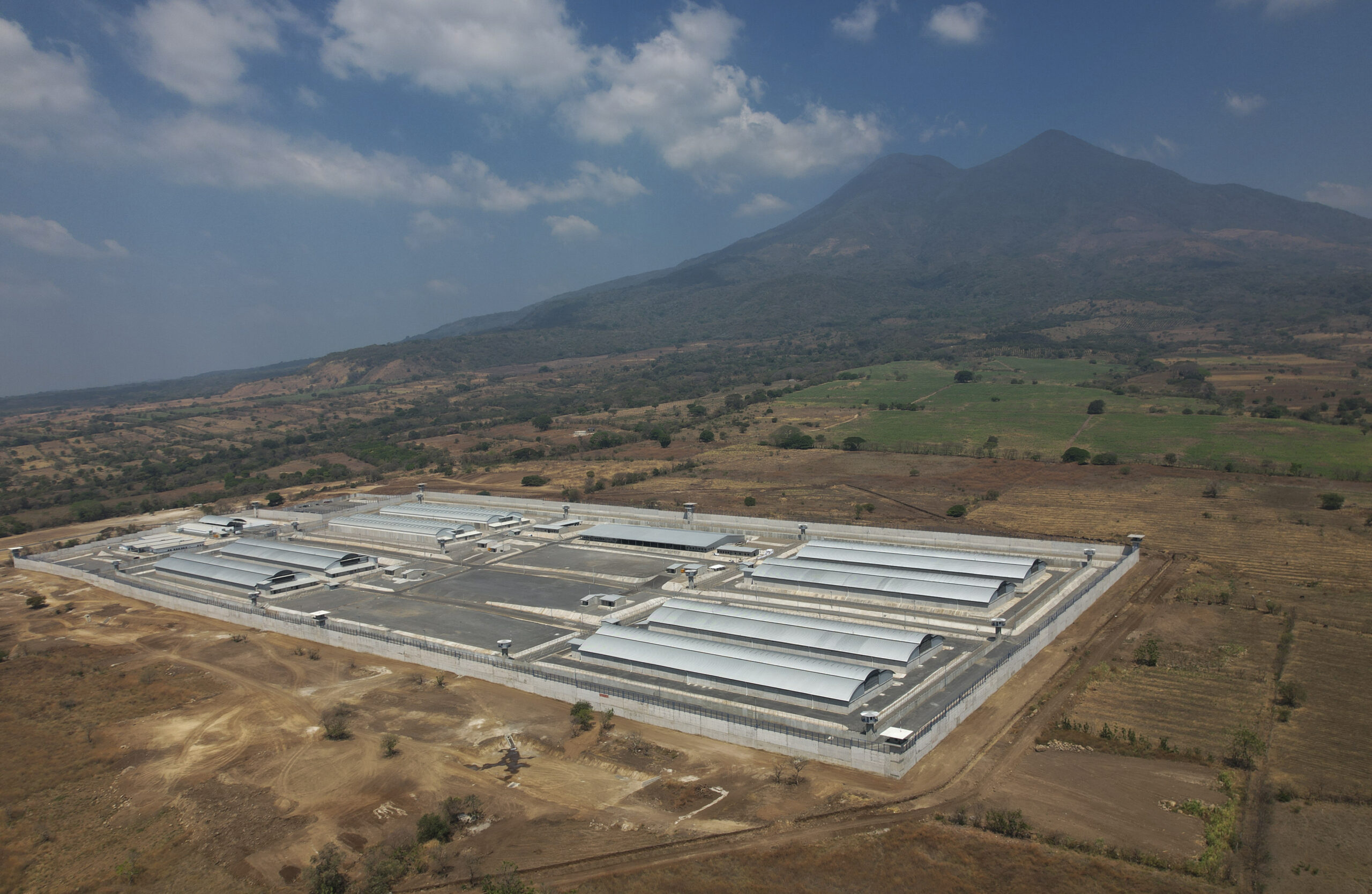Harrowing Report Documents Sexual Abuse, Suicide Attempts, and Beatings at El Salvadoran Migrant Prison

FILE – The mega-prison known as Detention Center Against Terrorism (CECOT) stands in Tecoluca, El Salvador, March 5, 2023. (AP Photo/Salvador Melendez, File)
A harrowing new report from The Washington Post documents sexual abuse, suicide attempts, and beatings at CECOT, the El Salvadoran prison the Trump administration has sent alleged gang members to.
After interviewing 16 of those sent to CECOT by the U.S. Government, the Post was able to paint the following picture of the conditions at the facility:
The Venezuelans, rounded up in President Donald Trump’s mass deportation campaign, told The Post they were subjected to repeated beatings that left them bruised, bleeding or injured. They said prison staff restricted medical care for detainees suffering from diabetes, high blood pressure or kidney failure.
The men slept on metal bunks — usually with no cushions — in group cells where overhead lights blazed 24 hours a day. They were expected to bathe and relieve themselves using a water tank and toilets that offered no privacy from cellmates. They were rarely allowed out of their cells.
Marco Jesús Basulto Salinas, a restaurant worker who had temporary protected status, told the Post that the prison director greeted them by informing them that they would no longer see the sun and would only leave “inside a black bag.” And some detainees tried to hurry their way out by attempting suicide using bedsheets or “rusted pipes to cut their veins.”
Basulto recalled that when Andry Hernández, a 31-year-old gay makeup artist, returned from the isolation cell inmates called “La Isla,” he returned with horror stories:
“Get up, piece of sh–,” an officer told him, he said. He was taken to La Isla, where a tiny hole in the ceiling provided only a needle of light and almost no air.
Four men entered and began touching him with their clubs and putting them between his legs. One forced Hernández to perform oral sex on him, he said.
Basulto said Hernández returned to the cell in tears and told him what had happened. He and other detainees offered to speak up to the prison staff, but he urged them not to. He feared it would provoke officers to “attack us even more.”
After inmates failed to secure better conditions by going on a hunger strike, they took to using “shards from metal pipes to slice their skin and write messages on their sheets in blood.” After some broke out of their cell, they were punished with a stint in La Isla that yielded a broken tooth, and dislocated arm, among other injuries.
The prisoners were eventually released after Venezuelan dictator Nicolás Maduro interceded on their behalf. One prisoner recalled being “warned that if he fled again and was deported back, he could be charged with treason.”





Comments
↓ Scroll down for comments ↓